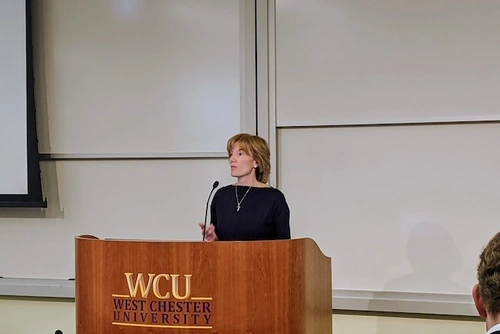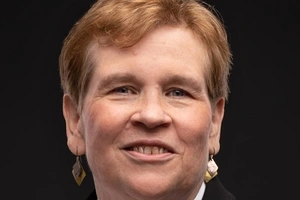Faculty Expert
Pennsylvania is facing a higher education affordability crisis that limits the opportunities for students, families, businesses, and colleges themselves.
State leaders know the stats, like Pennsylvania ranking 49th in college affordability. The Higher Education Funding Commission, which is charged with creating a formula for how the state invests in higher education, asked Penn GSE’s Laura Perna what to do about it.
At a January 8 hearing at West Chester University, Perna told the commission that unless the Commonwealth can find ways to expand access and support for minorities, low-income students, and adult learners; lower barriers between institutions; and make it easier for families to understand the cost of college, residents and businesses will continue to struggle.
“We can’t get to where we need to be in terms of educational attainment without closing the gaps,” Perna said, “and we have some really big gaps.”
Perna, an expert in higher education access, affordability, and student success, chairs Penn GSE’s Higher Education division, ranked #7 by U.S. News & World Report. She is also the co-founder of Penn GSE’s Alliance for Higher Education and Democracy (Penn AHEAD). She is currently creating the first comprehensive study of college promise programs in the US.

Perna’s recommendations for the commission included:
- Ensuring that any funding formula provides adequate resources for community colleges and other institutions that enroll high rates of traditionally underserved groups, including racial and ethnic minorities, and low-income families.
- Make sure every resident has access to a community college. Pennsylvania’s current network of 14 community colleges, offering programs in 109 sites, leaves large areas of the state underserved. Students frequently have to attend courses at multiple sites, sometimes in different counties, to complete programs.
- Smooth the pathway for students to transfer credits, especially between community colleges and four-year institutions.
- Increase and stabilize funding for the Pennsylvania State Grant. Perna praised the state for continuing to make this a need-based award that serves students who need it most. But she noted the size of the grant has not risen at the same rate as tuition.
- Get more students to apply for federal student aid. This step, which would cost Pennsylvania taxpayers very little, could boost college attendance.
- Get colleges to be more transparent about pricing. Federal law requires every college receiving federal money to post a Net Price Calculator on its website. But Perna’s research has found these calculators are often hard to find, out of date, or even misleading.
- Consider establishing a college promise program specifically for working adults who are older than traditional college students. Between jobs, family commitments, housing, and transportation, they have dramatically different needs than 18-year-olds. Tennessee has had success boosting enrollment and graduation rates by creating Tennessee Reconnect to serve this group.
“One of the pieces of value we’ve seen is Adult Promise programs like this provide a clear message that going back to college is possible,” Perna said. “We all know when we fail, it’s really hard to say ‘I’m going to go back’. Building that bridge for people to come back is really important.”
Perna also noted that while students could once work their way through college, that is no longer feasible. A student earning state minimum wage of $7.25 an hour would need to work 26.9 hours a week to pay tuition at a community college, or 66 hours to cover the net price of a four-year degree from a PASSHE school.
The commission plans to write a report later this year. Perna and her team of researchers will continue to explore ways colleges can make it easier for students to attend and thrive.
Media Inquiries
Penn GSE Communications is here to help reporters connect with the education experts they need.







